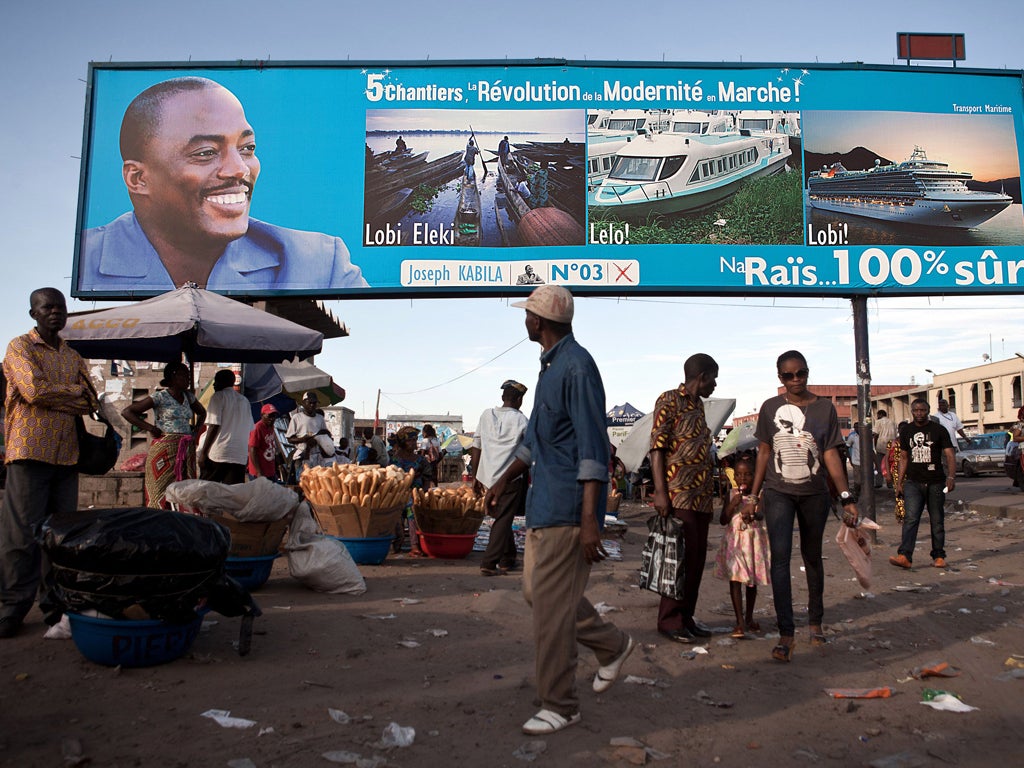President's secret deals cost Congolese £3.5bn
President selling off state assets for fraction of true price – and international donors letting him do it

International donors have been accused of turning a blind eye to the corrupt fire sale of the mineral wealth of the Democratic Republic of Congo in advance of next week's election in the blighted Central African nation.
One of the poorest countries in the world, the DRC has lost $5.5bn (£3.5bn) in state assets in a series of secret mining deals overseen by President Joseph Kabila, according to documents released by a British MP.
Some of the country's richest publicly owned mines have been sold off for a fraction of their market value to offshore shell companies operating out of the British Virgin Islands over the last four years. The sale of the concessions – one of which went for 1/16th of its estimated value – was not announced and no other bids were invited. The assets were later sold to international firms at a huge profit to the shell companies.
The fire sale comes despite the Congolese government's commitments to international lenders to put an end to corrupt and secretive mining deals. The IMF approved $551m in loans to the DRC government in December 2009, conditional on greater transparency in the mining sector.
British MP Eric Joyce, who chairs the all-party African Great Lakes Group, said the Kabila government had been allowed to "run rings round" the IMF. "The people of the DRC are losing their natural wealth, tax revenues and jobs because the IMF and governments around the world will not enforce the agreed benchmarks made on Kabila's government," he said.
The DRC, which was blighted by decades of civil war, has estimated mineral assets of more than $20 trillion. The alleged lost funds amount to $80 for every person in the country – significantly more than the entire international aid budget for the country, which is valued at more than $3.1bn. Western aid accounts for half of the DRC's annual budget.
"This is big news that should have a serious impact on budgetary aid to the Congo and in donors' attitudes in general," Jason Stearns, a Congo analyst, said.
Modeste Bahati Lukwebo, head of the audit board of the DRC National Assembly's Economic and Financial Committee, said he was being kept in the dark by state-owned mining firms and the government.
"They don't tell us anything," he told Bloomberg earlier this year. "They must make management transparent and justify what the Congolese state has gained from the sale of all these concessions."
The government has refused to comment. Before a string of devastating wars, the mining of copper, tin, cobalt and other valuable minerals was one of Congo's biggest employers.
Mr Kabila, who came to power after his father was assassinated a decade ago, faces a strong opposition challenge when voting starts on 28 November. He already changed the constitution earlier this year to avoid a second-round runoff against a unified opposition candidate.
Join our commenting forum
Join thought-provoking conversations, follow other Independent readers and see their replies
Comments
Bookmark popover
Removed from bookmarks